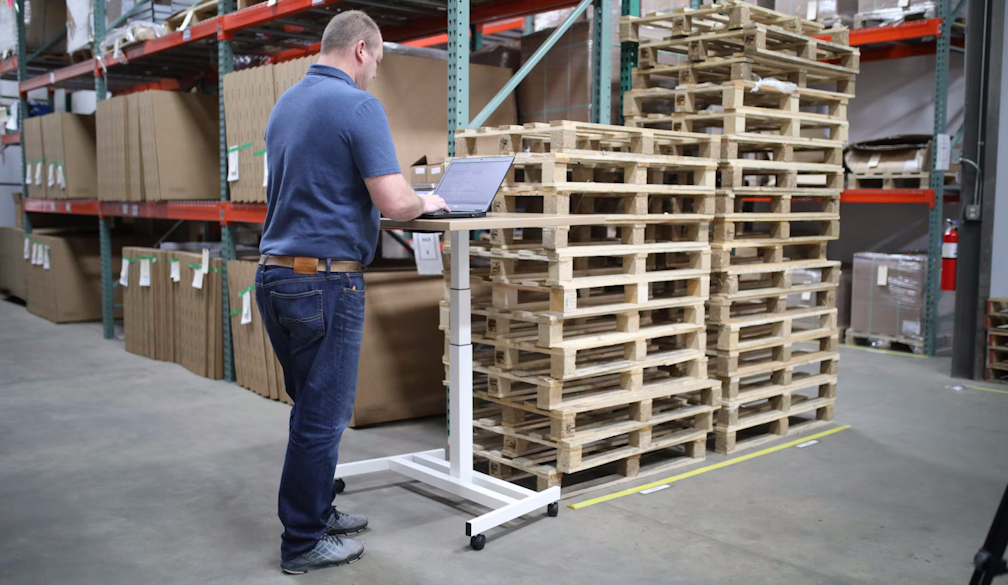The Role of Pallets in Modern Supply Chains and Logistics

In the fast-paced world of logistics, manufacturing, and retail, pallets play a crucial behind-the-scenes role in keeping operations efficient and products moving. While often overlooked by the average consumer, pallets are an essential part of virtually every industry that deals with physical goods. Whether it’s transporting food, electronics, construction materials, or consumer goods, pallets help streamline handling, storage, and distribution across Australia and globally.
Understanding the Function of Pallets
Pallets are flat structures used to support goods during storage and transportation. They provide a stable base that allows forklifts, pallet jacks, and automated systems to lift and move heavy or bulky loads with ease. Their standardised design helps businesses maximise space in warehouses and shipping containers, ensuring better organisation and fewer damaged items during transit.
The true value of pallets lies in their simplicity and adaptability. They can carry anything from a stack of bricks to delicate glassware, and they do so while improving safety, reducing manual handling, and optimising logistics operations.
Types of Pallets and Their Applications
There are several types of pallets, each suited to different materials, industries, and conditions. Wooden pallets are the most common, offering a balance between cost, strength, and reusability. They are widely used in agriculture, construction, and retail because they’re readily available and easily repairable.
Plastic pallets are favoured in sectors where hygiene is critical, such as food processing and pharmaceuticals. They’re resistant to moisture, easy to clean, and often last longer than wooden options. Steel or metal pallets are used in heavy-duty industrial settings, thanks to their durability and strength under extreme loads.
Cardboard or corrugated pallets are lightweight and fully recyclable, making them ideal for one-way shipping or environmentally focused businesses. Each type of pallet has its own advantages, and the right choice depends on the specific requirements of your supply chain.
Pallets and Warehouse Efficiency
Warehousing is one of the areas where pallets deliver the most visible value. By allowing goods to be stacked vertically, pallets make the best use of available space. They also reduce the need for manual handling, helping to improve worker safety and reduce labour costs.
With standard-sized pallets, businesses can create uniform loads that are easier to track, move, and store. This uniformity is particularly beneficial in automated warehouse systems, where efficiency and speed are paramount. Additionally, pallets support FIFO (First-In-First-Out) and LIFO (Last-In-First-Out) inventory systems by making it easy to rotate stock and manage shelf life, especially in industries dealing with perishables.
The Role of Pallets in Transportation
Transportation logistics heavily rely on pallets for both domestic and international shipping. They provide a strong, stable base that keeps goods secure and upright during transit. This reduces the risk of damage caused by shifting or compression during long journeys.
In container loading, using pallets allows for faster loading and unloading, which reduces handling time and turnaround at distribution centres. This can lead to significant cost savings and improved delivery schedules.
Moreover, because pallets are standardised, shipping companies can calculate space usage more accurately, making transportation more predictable and manageable.
Sustainable Practices with Pallets
Sustainability is increasingly becoming a priority for businesses, and pallets are a key player in environmentally responsible logistics. Wooden pallets are often made from renewable resources and can be reused many times before needing repair or recycling. Many are sourced from sustainably managed forests and can be repaired to extend their life cycle.
Plastic pallets, while requiring more energy to produce, have longer lifespans and can be recycled into new pallets or other plastic products once they’re no longer usable.
Businesses focused on sustainability often work with pallet pooling or rental companies. These services provide access to reusable pallets and manage their collection, cleaning, and redistribution—helping to reduce waste, transportation costs, and environmental impact.
Choosing the Right Pallet Supplier
Selecting a reliable pallet supplier is critical to maintaining a smooth supply chain. The right provider offers more than just pallets—they offer insights into material choice, load specifications, compliance with export regulations, and logistical efficiency.
In cities like Melbourne, Perth, and Adelaide, where logistics are central to business operations, working with a local pallet supplier can mean faster turnaround times and customised solutions. Local providers understand regional challenges such as climate conditions, transport routes, and industry standards.
Some suppliers even offer services like heat-treated or ISPM-15 compliant pallets, which are required for international shipping to protect ecosystems from pests and disease. Choosing a supplier who understands these nuances can save your business from costly delays and compliance issues.
The Digital Future of Pallet Management
As technology continues to reshape logistics, pallets are evolving as well. RFID tags and barcode systems can now be integrated into pallet systems for better tracking and data collection. This makes it easier for companies to monitor inventory, reduce losses, and improve efficiency across the supply chain.
Digital tracking helps businesses understand where pallets are, how they’re being used, and when they need maintenance or replacement. It also allows for better forecasting, improved customer service, and reduced operational waste.
Final Thoughts on the Value of Pallets
It’s easy to underestimate the importance of pallets, but their impact is undeniable. From warehouse organisation and safety to efficient transport and sustainable practices, pallets play a foundational role in modern logistics. They support nearly every sector of the economy, from agriculture to retail, manufacturing to pharmaceuticals.
Whether you’re a small local business or a multinational corporation, investing in the right pallet strategy can lead to smoother operations, lower costs, and a more sustainable footprint. By understanding the role that pallets play in your supply chain, you can unlock new levels of efficiency and reliability—making them far more than just a flat wooden platform, but a cornerstone of your logistics success.




